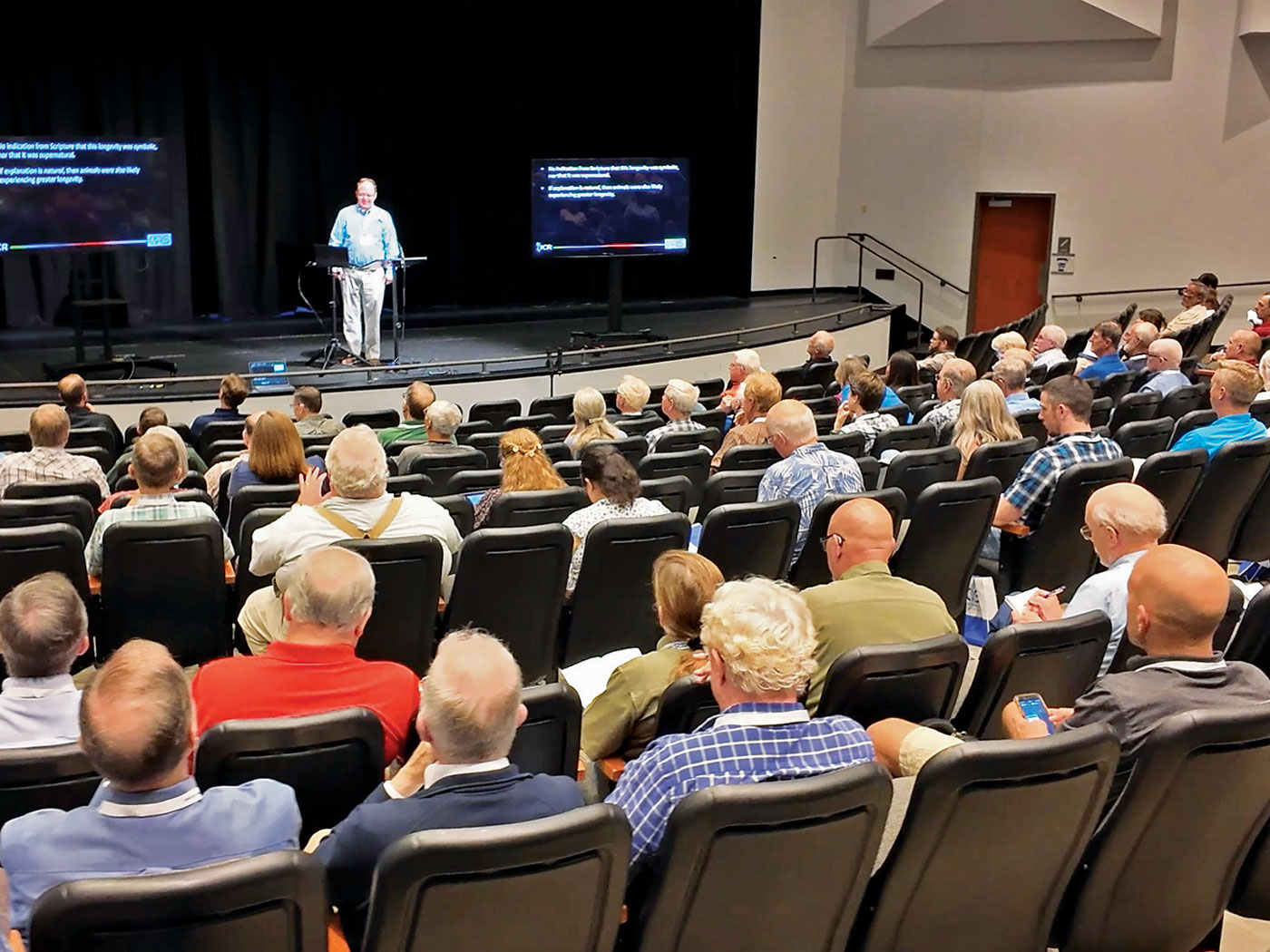Search Tools
New Defender's Study Bible Notes
4:2 the gospel. The “gospel” is not just a New Testament revelation, for it was preached to the children of Israel in the wilderness, in types and prophecies at least. In fact, it is “the everlasting gospel” (Revelation 14:6-7), and the first promise of redemption (Genesis 3:15) is commonly known as the protevangel (first gospel). In its essence, the gospel (good news) is the message that the Creator is also our Redeemer and coming King and that true faith in Him—faith which produces salvation—will also produce loving obedience to His Word.
4:2 mixed with faith. It is vital to “hear” the Word, but then it is necessary to “believe” it as well. Note John 5:24; James 1:22.
4:3 works were finished. God’s works of creation were finished at the end of the six days of creation week (Genesis 2:1-3). He is not still creating, as the theistic evolutionist must allege. Thus the natural processes we can study in operation today are not processes of creation; rather, they are processes of conservation and disintegration, as enunciated in the universally applicable First and Second Laws of Thermodynamics, respectively. Furthermore, the works of creation were finished “from the foundation of the world,” not several billion years later, after the supposed geological ages took place. In effect, these completed works of creation actually constituted the foundation of the world. The idea of evolution, if regarded as God’s method of creation is thus a totally false doctrine and a destructive heresy.
4:4 rest the seventh day. This truth is not only quoted from Genesis 2:2, but also is emphasized in Exodus 20:11, as the basis of the Fourth Commandment. It is clear in all these passages that the days of creation week were literal days, not vague ages of indefinite duration and termination. On the seventh day, God rested from His works of creation, though not from His ongoing work of “conservation” (Hebrews 1:3; Colossians 1:17) and, later, His work of redemption, which He undertook when sin and death entered the world. Of these, Jesus said: “My father worketh hitherto, and I work” (John 5:17). The work of redemption—at least the work of paying the price of redemption—was then completed on the cross, when Christ cried out: “It is finished!” (John 19:30). He also rested from this work when He “sat down on the right hand of the Majesty on high” (Hebrews 1:3).
4:8 Jesus. Most expositors understand this to mean “Joshua,” since “Jesus” is a Greek form of “Joshua,” who is otherwise never mentioned by name in the New Testament. It is also possible to understand this as actually referring to the Lord Jesus Christ, who before His incarnation may have been revealed as “the angel of His presence” (Isaiah 63:9). “In His love and in His pity, He redeemed them,” as He led them into the promised land under Joshua. In any case, this was not the ultimate “rest” God had promised His people, as the next verses show.
4:9 a rest. The “rest” in this verse is not the rest mentioned so frequently in this section. Rather it is “sabbath rest,” from the Greek sabbatismos, occurring only this once in the New Testament. Thus the people of God not only may enjoy the spiritual rest promised by Christ in this life (e.g., Matthew 11:28) but also may look forward to the eternal rest in the new earth which was typified by a weekly Sabbath rest in Israel. The latter not only commemorated the completed work of creation but also anticipated the completed work of redemption and reconciliation. That coming rest will not be one of inaction, of course, for “His servants shall serve Him” there (Revelation 22:3), but rather one of perfect fellowship with God and freedom from the presence of sin. Our present weekly “rest” on the Lord’s Day continues this observance even more effectively than the sabbatismos of Israel, for it commemorates both His creation and His resurrection, the two finished works of Christ, until He comes again.
4:10 God did from his. Note again that God “ceased from His works” of creation, and thus creation is no longer taking place, save in occasional special miracles. In analogous fashion, the believer now enters into rest (not the sabbatismos rest which still “remaineth”), but the immediate spiritual rest (Greek katapausis) received right now, when we cease trying to work for our salvation and receive the finished work of Christ by faith.
4:11 labour. The word “labour” here means, “be diligent.” We do not work to enter into His rest, for that is the very theme of this section, but rather believe with confidence in His Word and His work. This faith will result in good works (Ephesians 2:10) as evidence of the reality of our faith (James 2:18), but it is not the works that save us.











